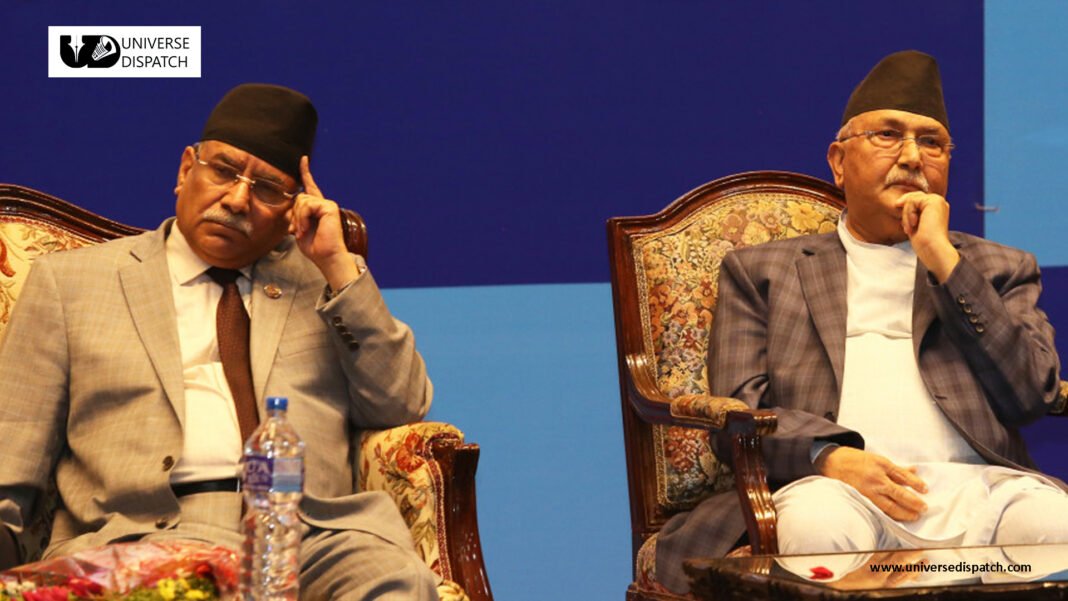Oli’s Power Grab Endangers Nepal’s Fragile Democratic Transition:
Oli’s Power Grab Endangers Nepal’s Fragile Democratic Transition. The recommendation by Nepal’s Prime Minister, K.P. Sharma Oli, to dissolve Parliament, duly endorsed by President Bidya Devi Bhandari, has driven young democracy into an unprecedented constitutional crisis and political instability. Mr. Oli, whose Nepalese Communist Party has a parliamentary majority of almost two-thirds, took a dramatic step as he came under growing pressure from his own party to revoke a decree released last week by his government.
Nepalese Prime Minister K.P. Sharma Oli’s recommendation to dissolve Parliament, duly supported by President Bidya Devi Bhandari, plunged young democracy into an unparalleled crisis of constitutional and political uncertainty. Mr. Oli, whose parliamentary majority is almost two-thirds of the Nepalese Communist Party, took a dramatic step as he came under increasing pressure from his own party to rescind a decree issued by his government last week.
But on Sunday, his Cabinet made a statement. The elections expected to take place from April to May 2021, one year ahead of schedule. The legality of Mr. Oli’s decision has questioned by constitutional experts. The 2015 Constitution of Nepal requires the house to dissolve before its five-year term expires only if a hung assembly occurs and no party manages to form a government. Since the President has made his recommendation clear, the Supreme Court will now determine the issue.
Mr Oli should have gone down in history:
When the Communist Party of Nepal (UML) of Mr. Oli and its coalition partners came to power with an overwhelming majority in 2017. Many hoped it would be a fresh start. Nepal went from a monarchy to a republican democracy in a painful transition. The CPN-UML and the Communist Party of Nepal (Maoist Centre), headed by former Prime Minister Pushpa Kamal Dahal, merged in less than a year to form the largest communist force in the world, the NCP. It was a historic chance for the NCP, and Mr. Oli in particular, to steer the new democracy out of its many crises. But the merger did not eliminate the underlying distinctions between the two factions of the NCP.
The oppressive tendencies of Mr. Oli and his rejection of sharing power with the Maoist group made matters worse. There have been calls from inside the NCP in recent months for Mr. Oli to step down. It was clear when the party requested him to withdraw the amendment, that he had lost internal support. But Mr. Oli chose, instead of following the party line, to sink his administration. A break cannot be ruled out, considering the severity of the crisis. And if that were to happen, Nepal would force back into political turmoil, from a slowing economy to the coronavirus crisis, at a time of multiple challenges.
As a statesman, Mr. Oli should have gone down in history. Instead, as Prime Minister, he has cut a sad figure, and his obsession with power risks unraveling the party he co-founded.




